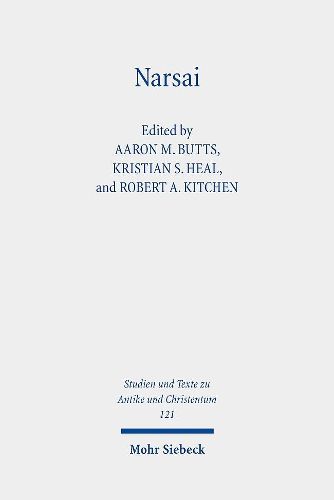Readings Newsletter
Become a Readings Member to make your shopping experience even easier.
Sign in or sign up for free!
You’re not far away from qualifying for FREE standard shipping within Australia
You’ve qualified for FREE standard shipping within Australia
The cart is loading…






Narsai ( ca. 500) was a founding theologian of the Church of the East. Active first at the School of the Persians in Edessa and later at the School of Nisibis, Narsai creatively synthesized his native Syriac tradition with the newly translated works of Antiochene theology and exegesis. In a time of theological upheaval, his works helped forge a new theological tradition in Syriac. This groundbreaking collection of original essays refocuses attention on this fascinating Late Antique thinker and illustrates his importance for understanding Christianity in Late Antiquity. The essays highlight Narsai’s contributions to exegesis, asceticism and moral formation, Jewish-Christian relations, liturgical theology, and place his work and thought within the cultural and intellectual world of two leading Christian centers in the Roman-Persian frontiers in the fifth century.
$9.00 standard shipping within Australia
FREE standard shipping within Australia for orders over $100.00
Express & International shipping calculated at checkout
Narsai ( ca. 500) was a founding theologian of the Church of the East. Active first at the School of the Persians in Edessa and later at the School of Nisibis, Narsai creatively synthesized his native Syriac tradition with the newly translated works of Antiochene theology and exegesis. In a time of theological upheaval, his works helped forge a new theological tradition in Syriac. This groundbreaking collection of original essays refocuses attention on this fascinating Late Antique thinker and illustrates his importance for understanding Christianity in Late Antiquity. The essays highlight Narsai’s contributions to exegesis, asceticism and moral formation, Jewish-Christian relations, liturgical theology, and place his work and thought within the cultural and intellectual world of two leading Christian centers in the Roman-Persian frontiers in the fifth century.